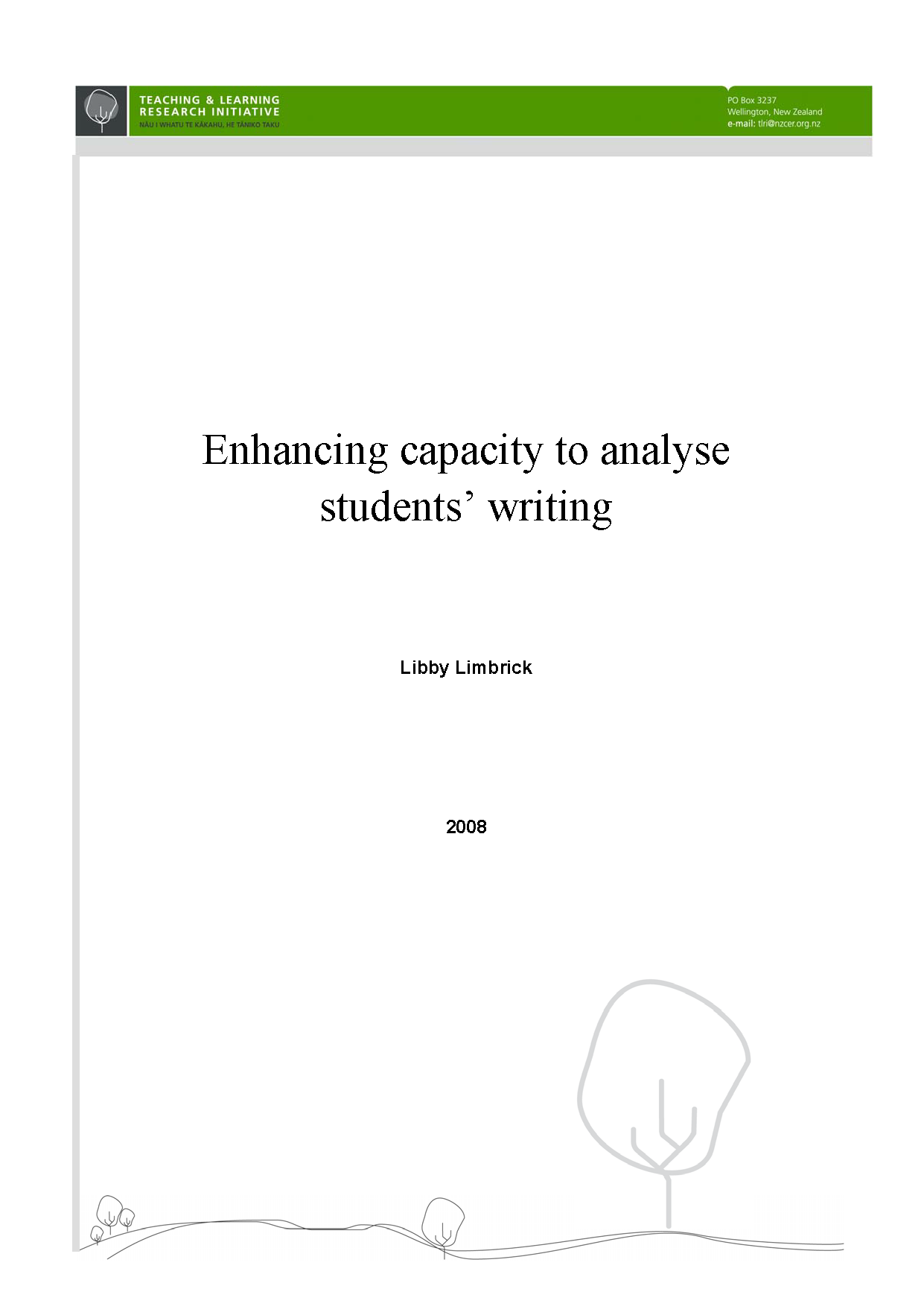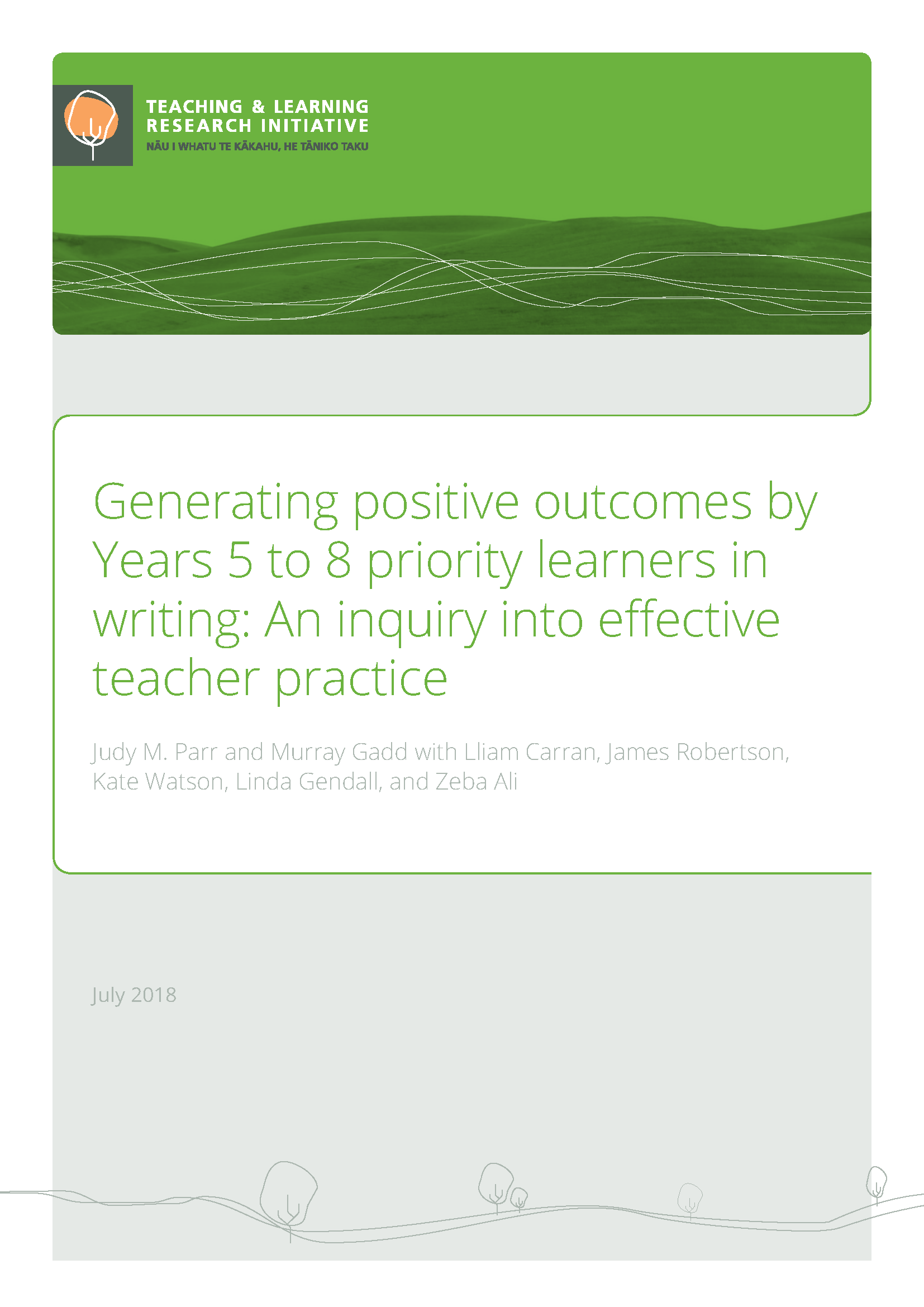
Enhancing capacity to analyse students’ writing
1. Introduction 1.1 Aims The research, practice, and partnership goals of the Teaching & Learning Research Initiative (TLRI) provided the framework for this project. The aims were aligned to all the principles of TLRI[1] and in particular to Principle One: a strategic principle that aims to reduce inequalities and address diversity, understand the processes of teaching and learning, and, to some extent, explore future possibilities. It also has strong links with the practice goals of Principles Five and Six. These demand that projects should contribute to practice and lead to significant improvements and outcomes for learners. As stated below, this was the guiding principle for this project. Principle Six also states


